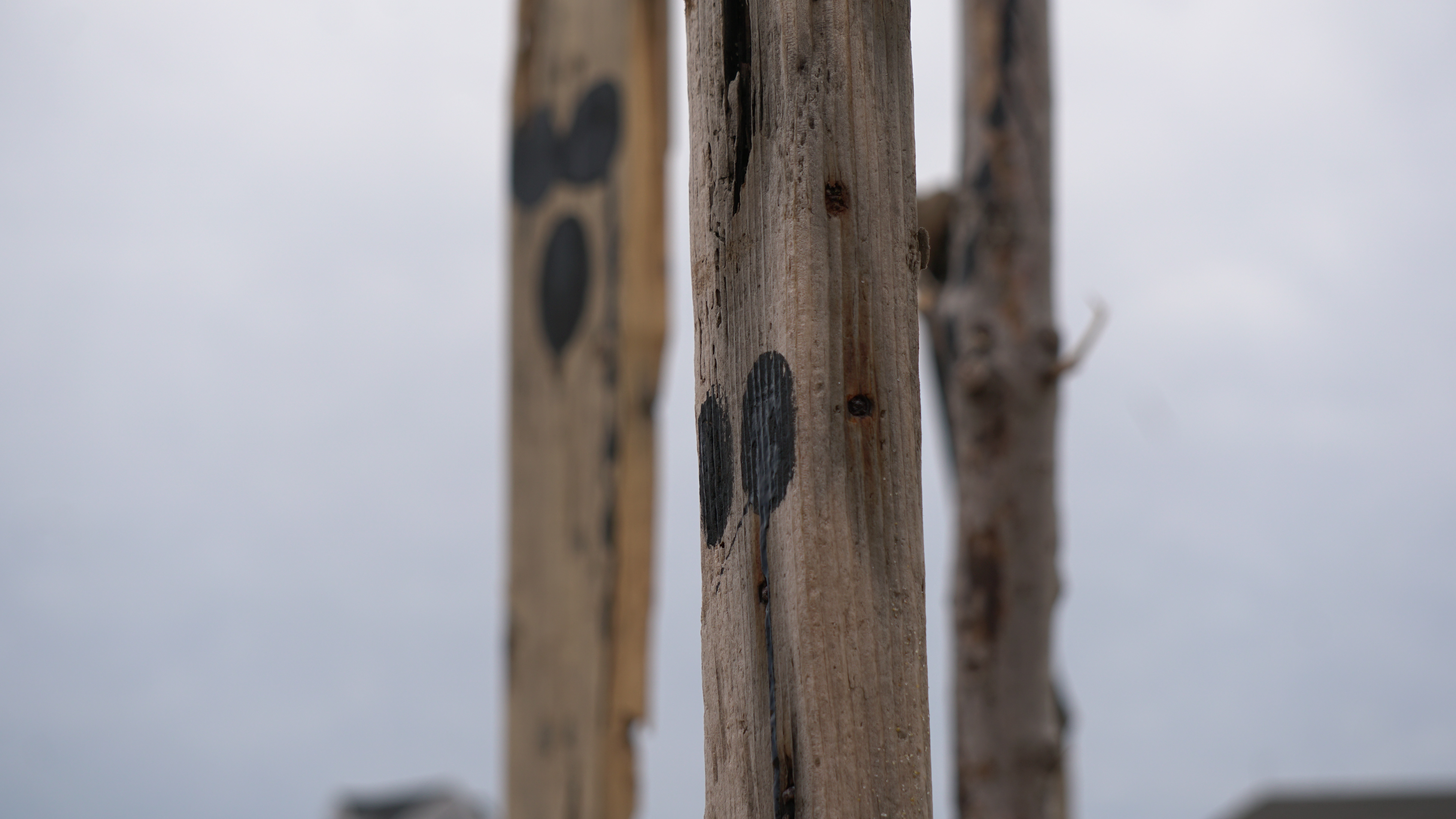
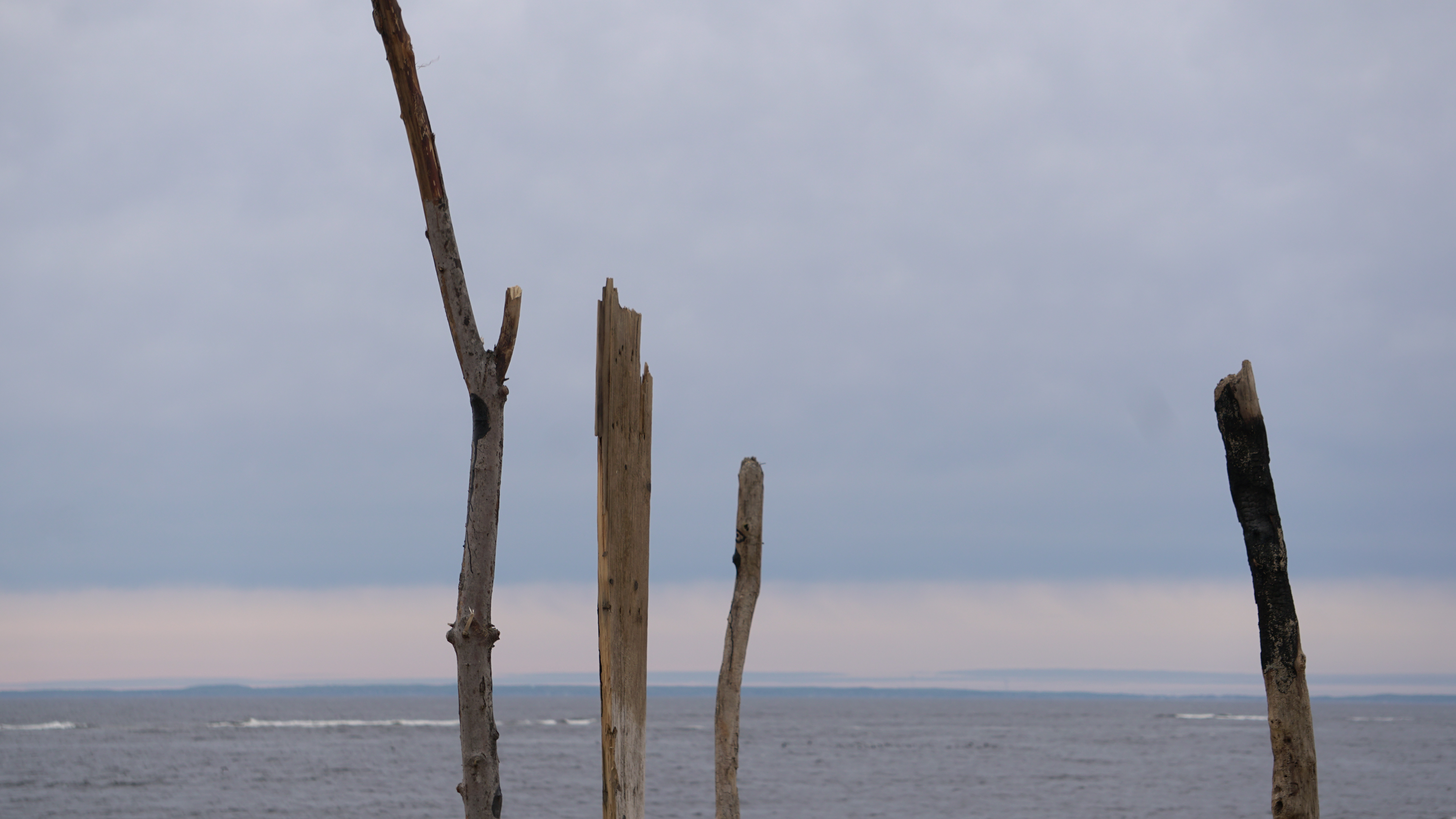
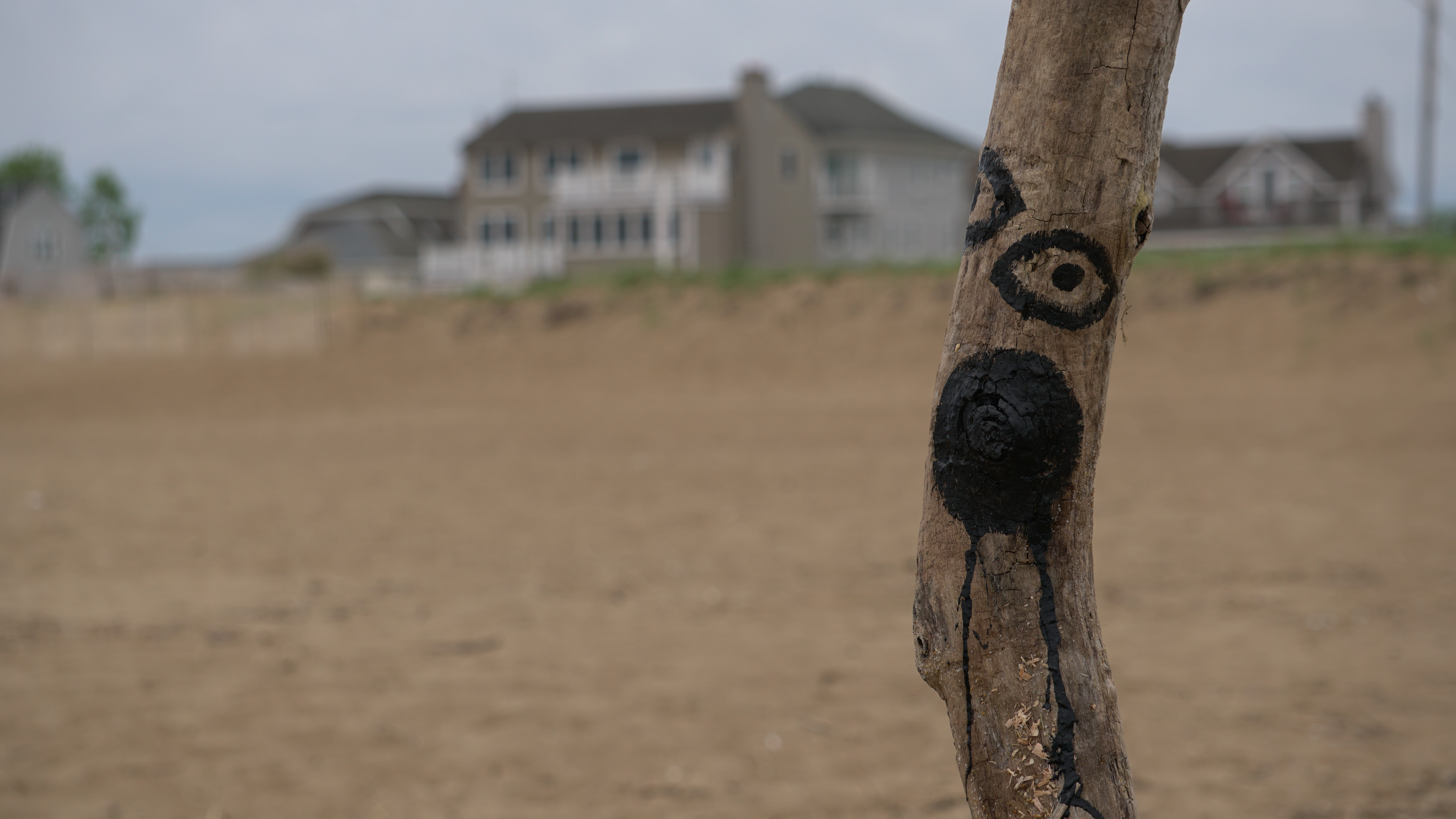
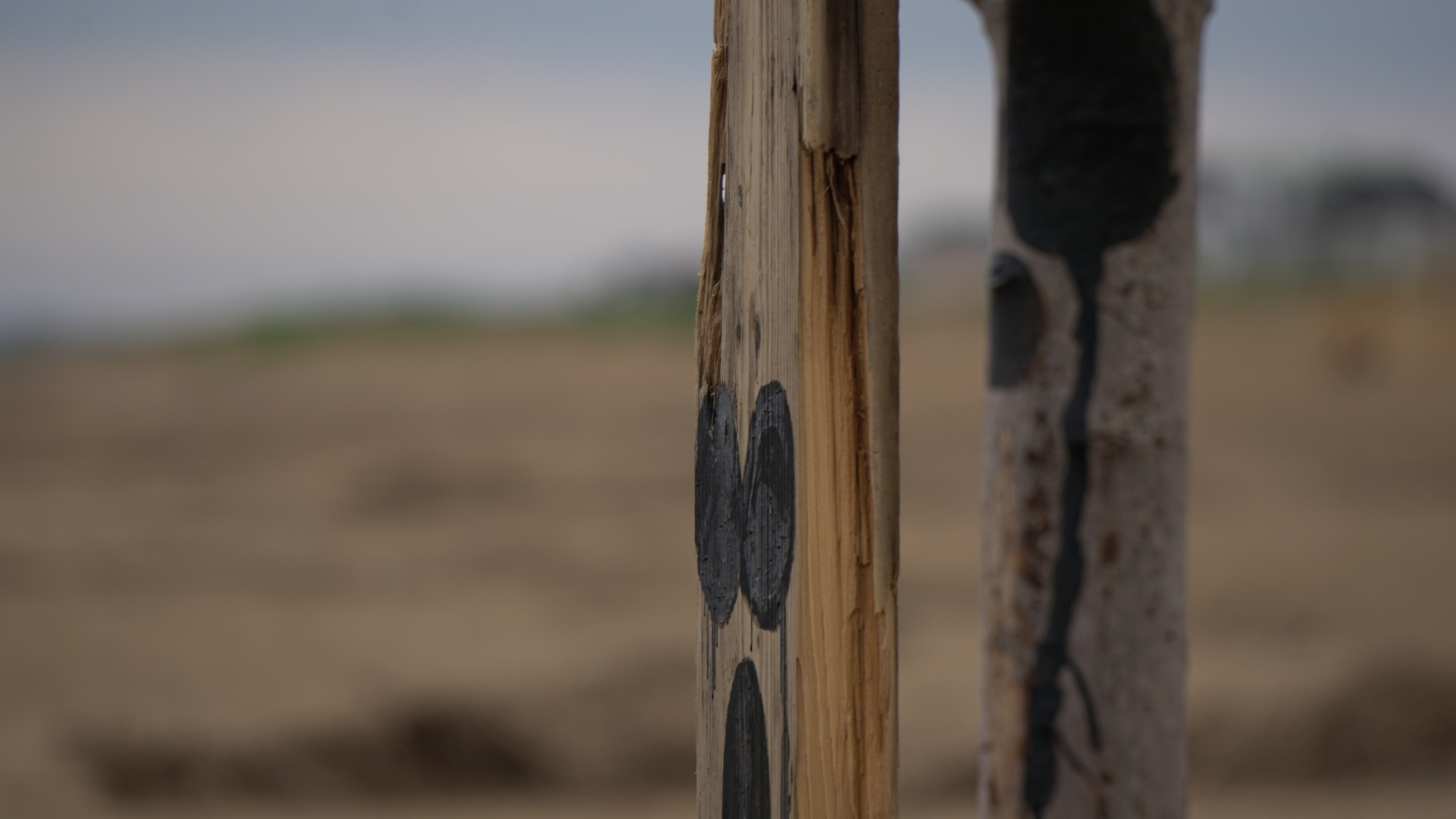
Location: Plum Island Beach, Newburyport, Massachusetts / Materials: Driftwood / Year: 2017
The Context
Forest of Watchers is the last action I undertook in as part of Dissecting Boston, a Weaving the Streets: A People's Archive Project. In this project, I set out to unravel the border walls that partition Boston communities and the icon of America. While in the end my dissections migrated to Plum Island (a Boston vacationland), I continued to explore the lineage of the borders that divide contemporary New England, Brand USA, and our current political conundrum.
The Action
On Memorial Day weekend, crowds flocked to downtown Newburyport, Massachusetts. One of the main attractions was the arrival of the tall ships, vestiges of New England's seafaring past. These wooden skeletons of a vast trade empire also embodied memories of another America, forgotten by the Newburyport tourist. The forgotten strands of genocide and slavery lie underneath the surface of the American brand, hidden by the glorified white and red bars of racialized hegemony.
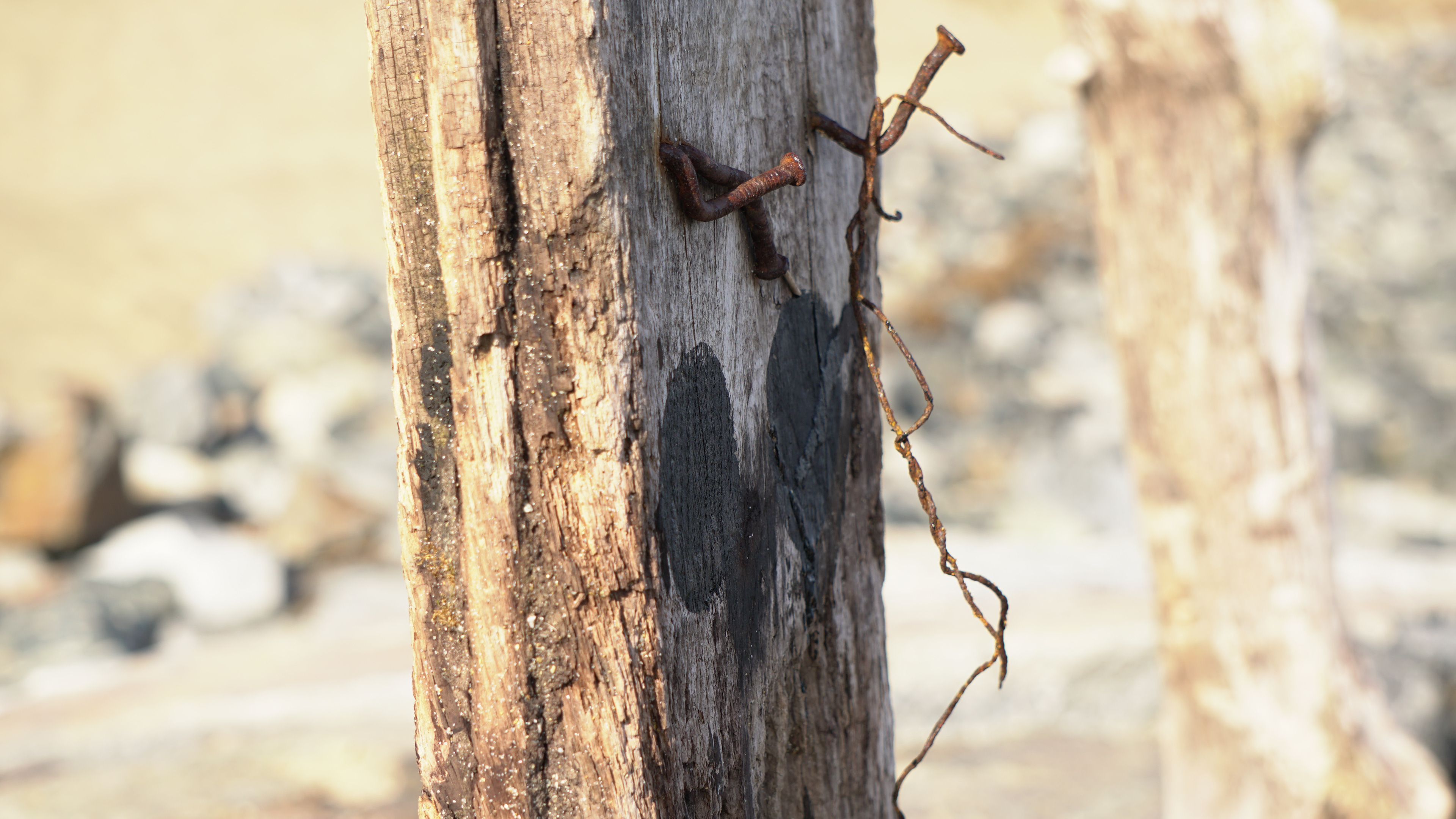
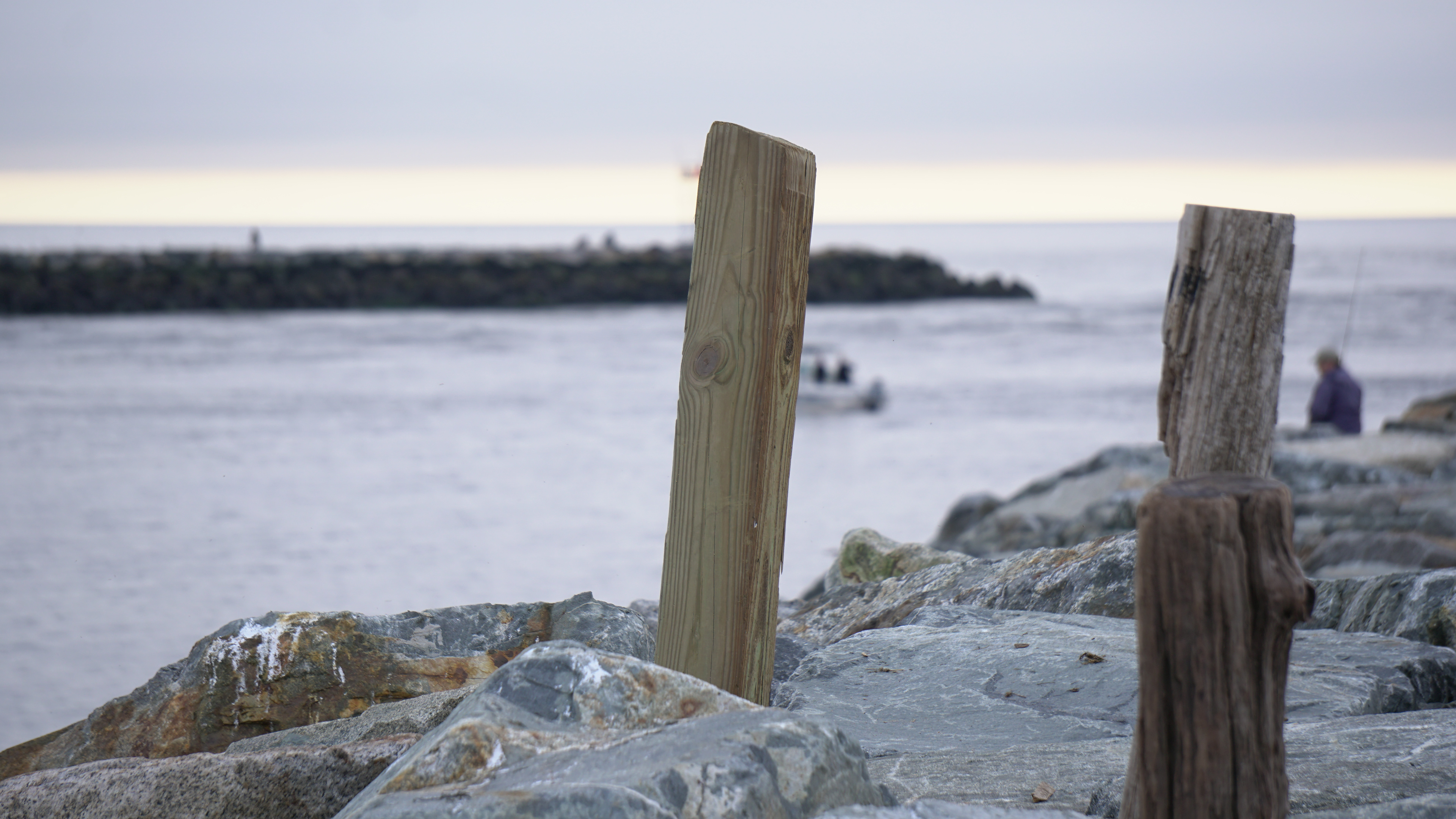
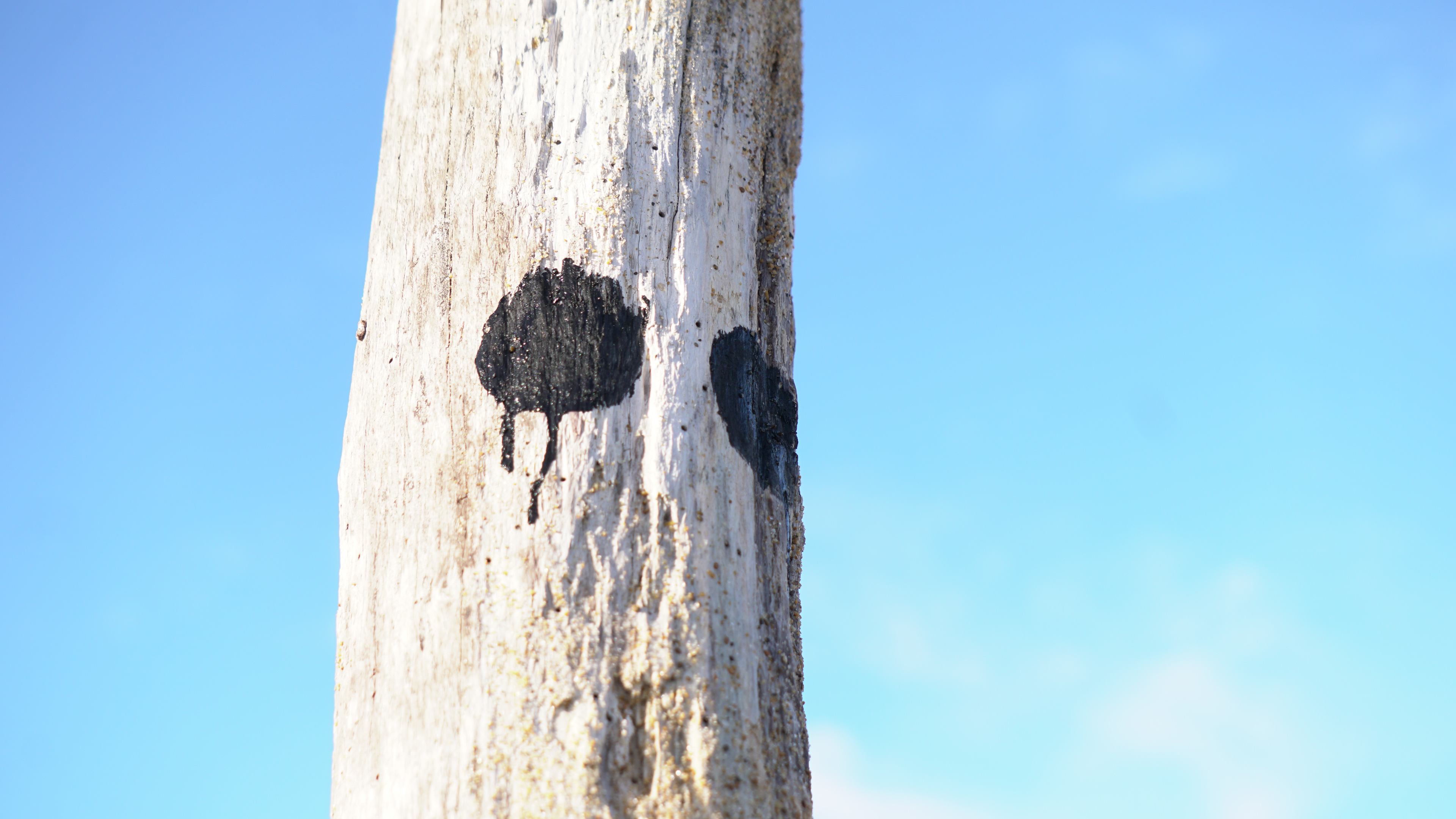
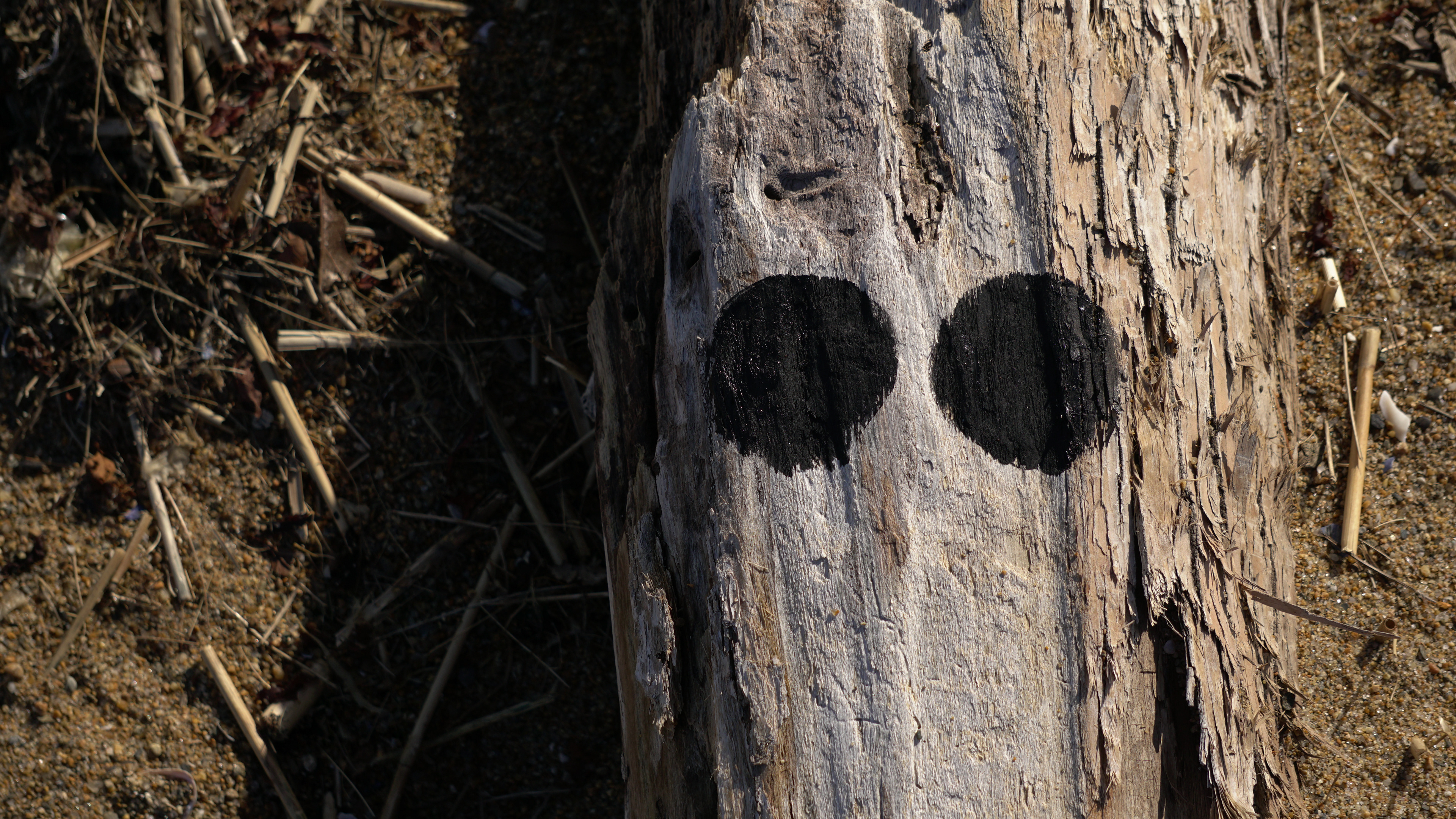
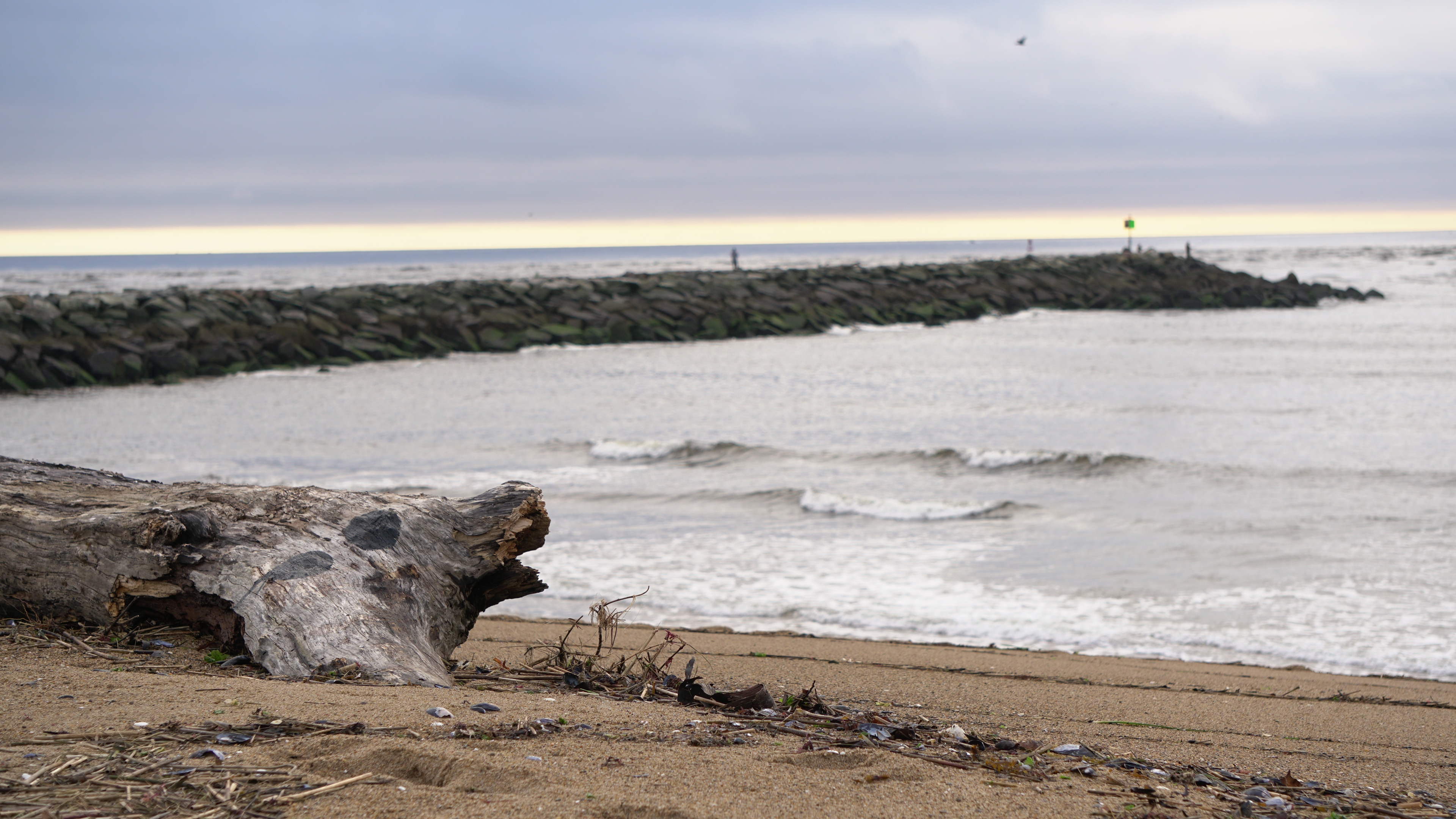
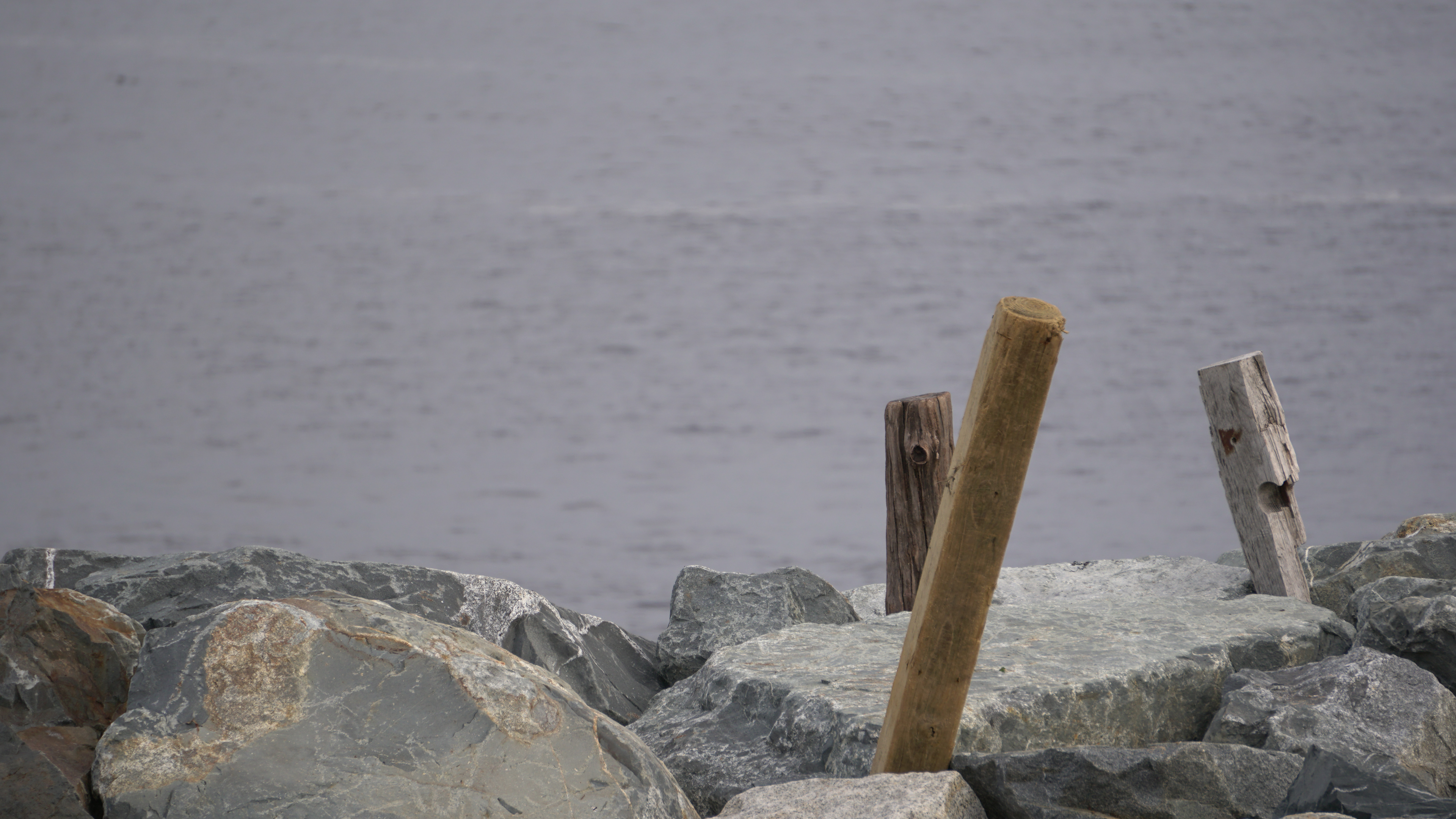
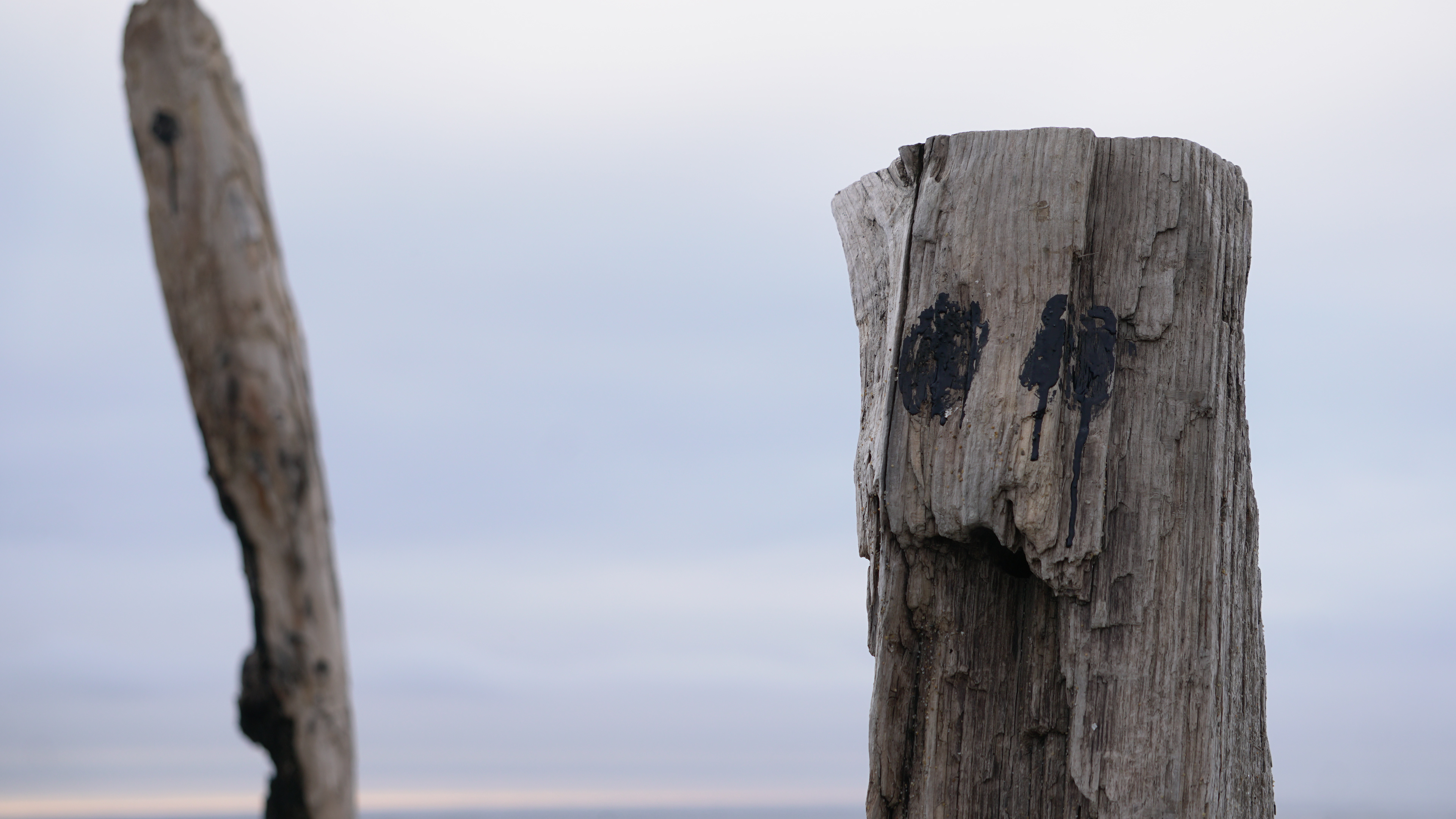
On the first day that the watchers appeared, the air was thick with the drone of helicopters. They swept over the northern end of Plum Island, circulating above the houses and scouring the beach from above. The reason for their disturbance is still unknown (perhaps related to the entrance of the tall ships at the mouth of the Merrimack River). Their hum contextualized the watchers, who returned with helicopter’s panoptic stare. The watchers stood as monuments of unseen history, those consciously forgotten in the spread of the nationalist American ideology. From the wars in Syria/Somalia/Yemen to the genocide of New England's first human inhabitants, the mythology of American is written in violence. By guarding the Atlantic Ocean, the natural border penetrated by the first English colonizers, the watchers subverted the gaze of those who glorify conquest.
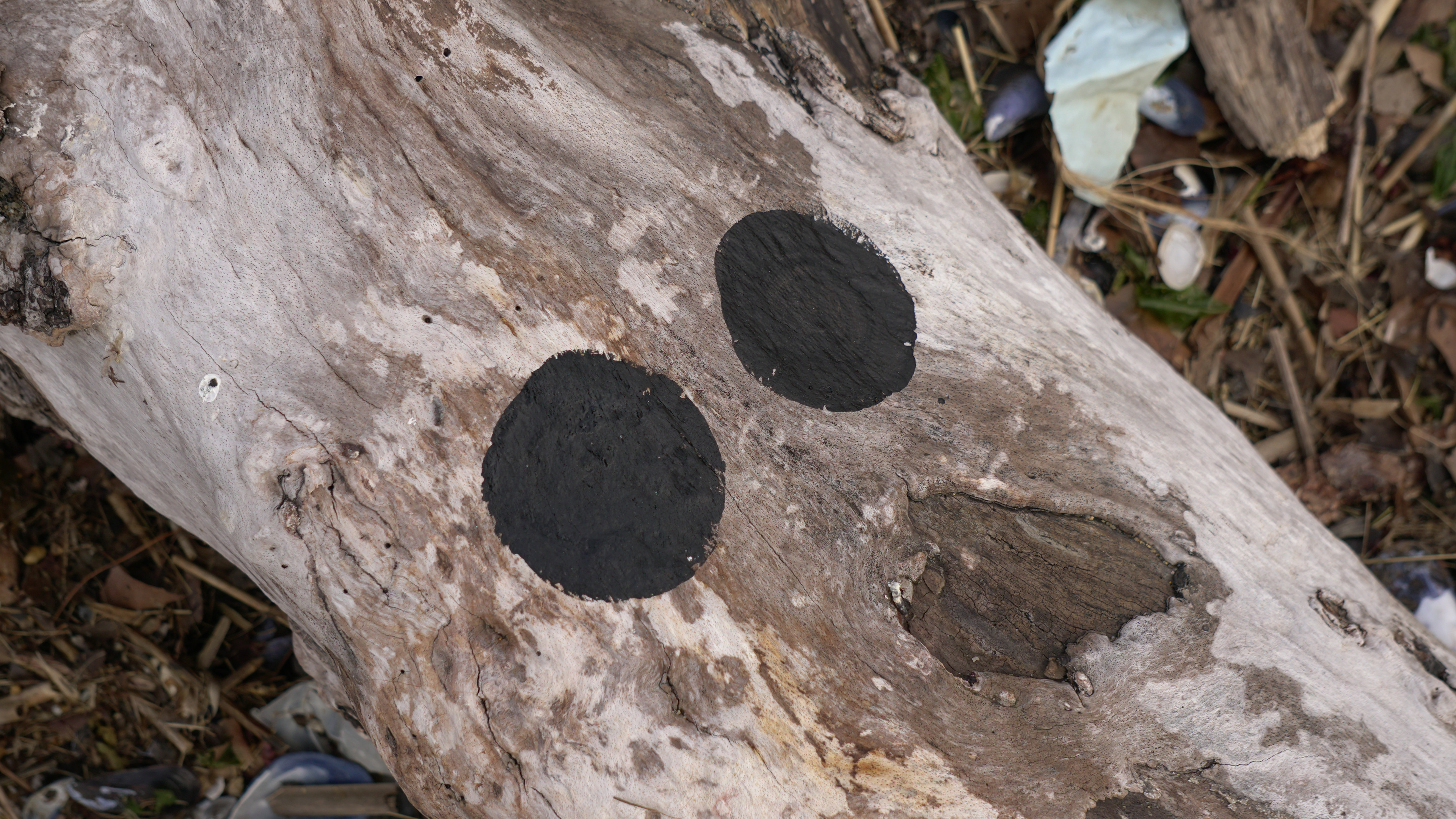
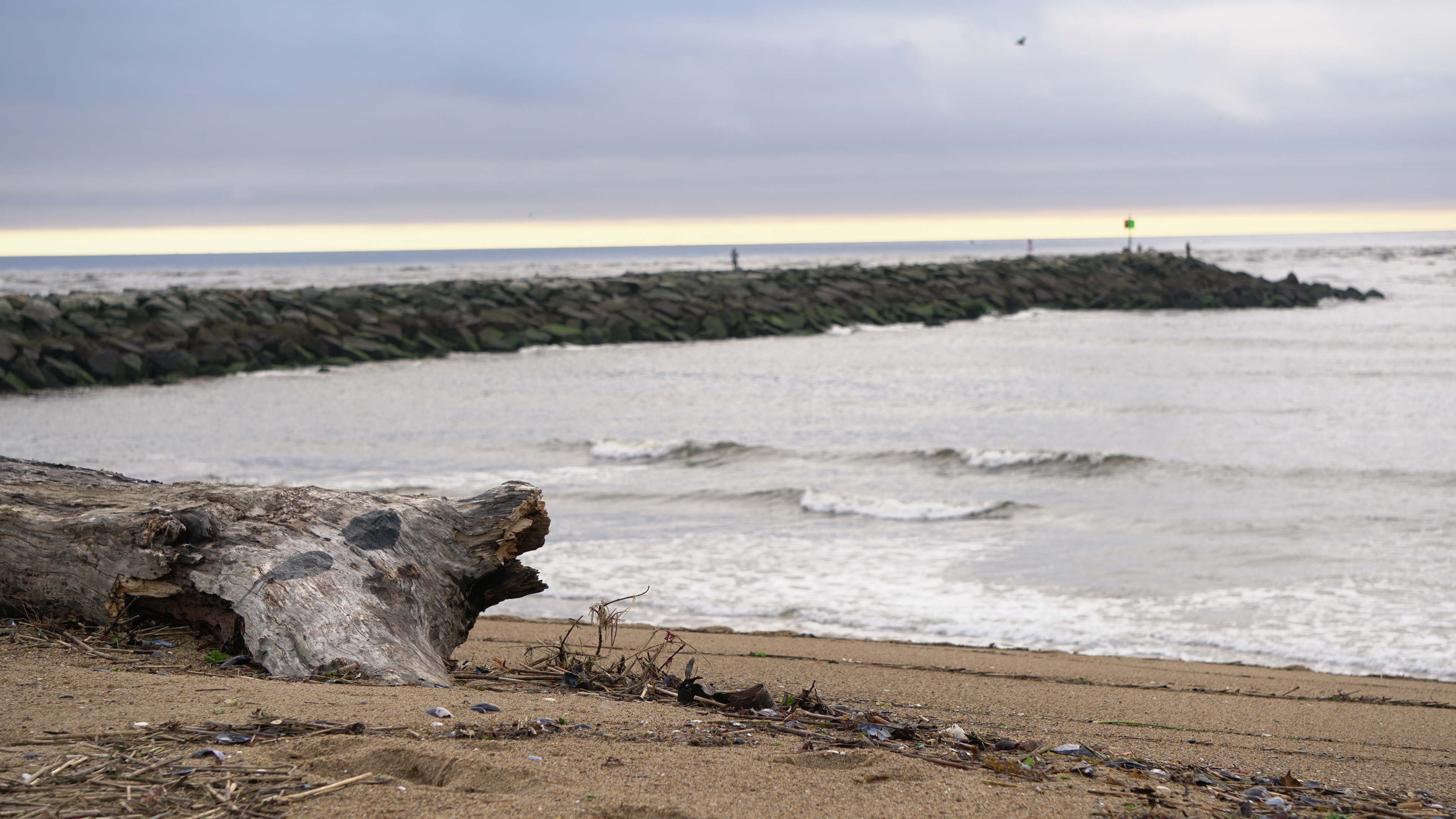
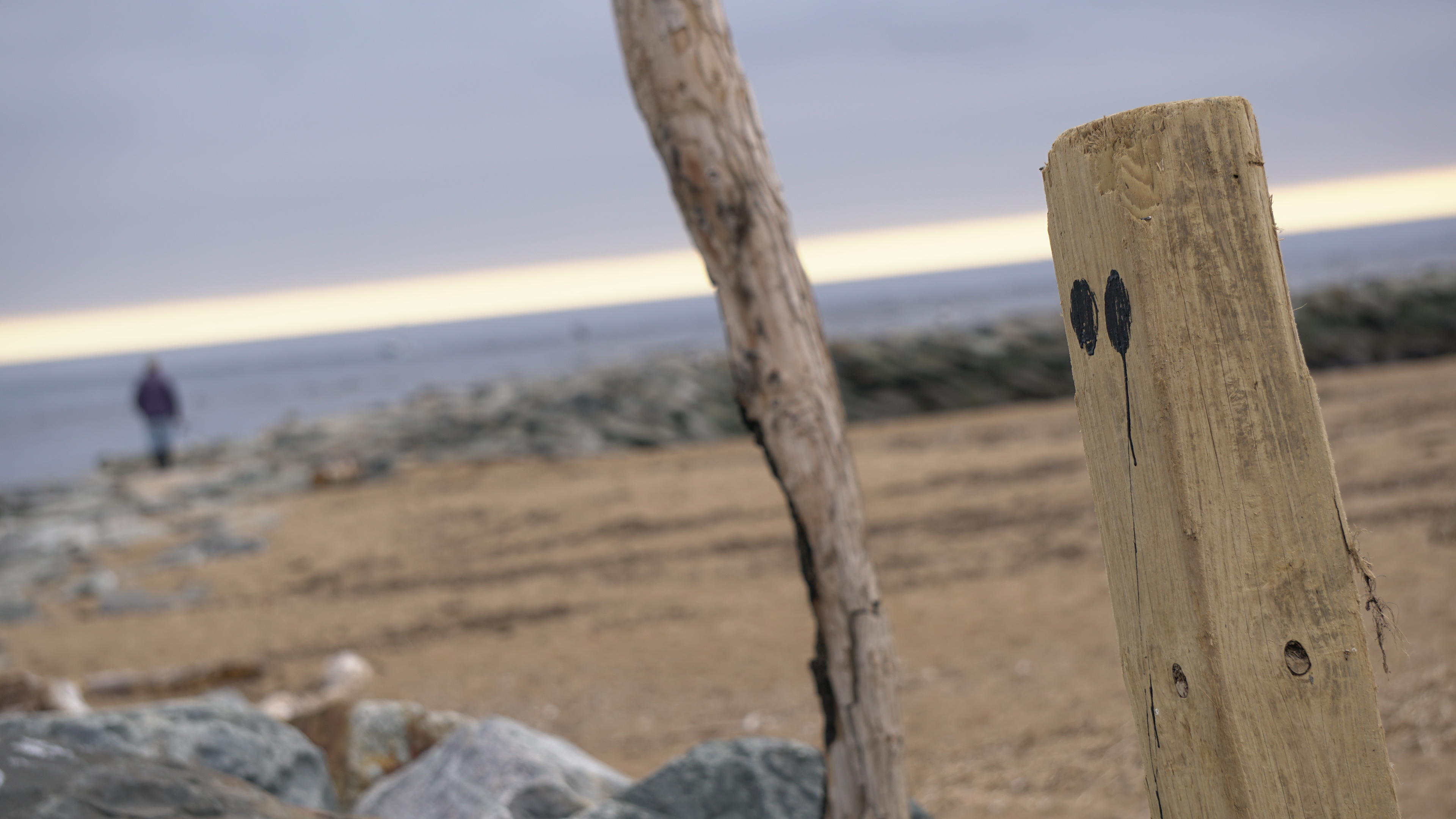
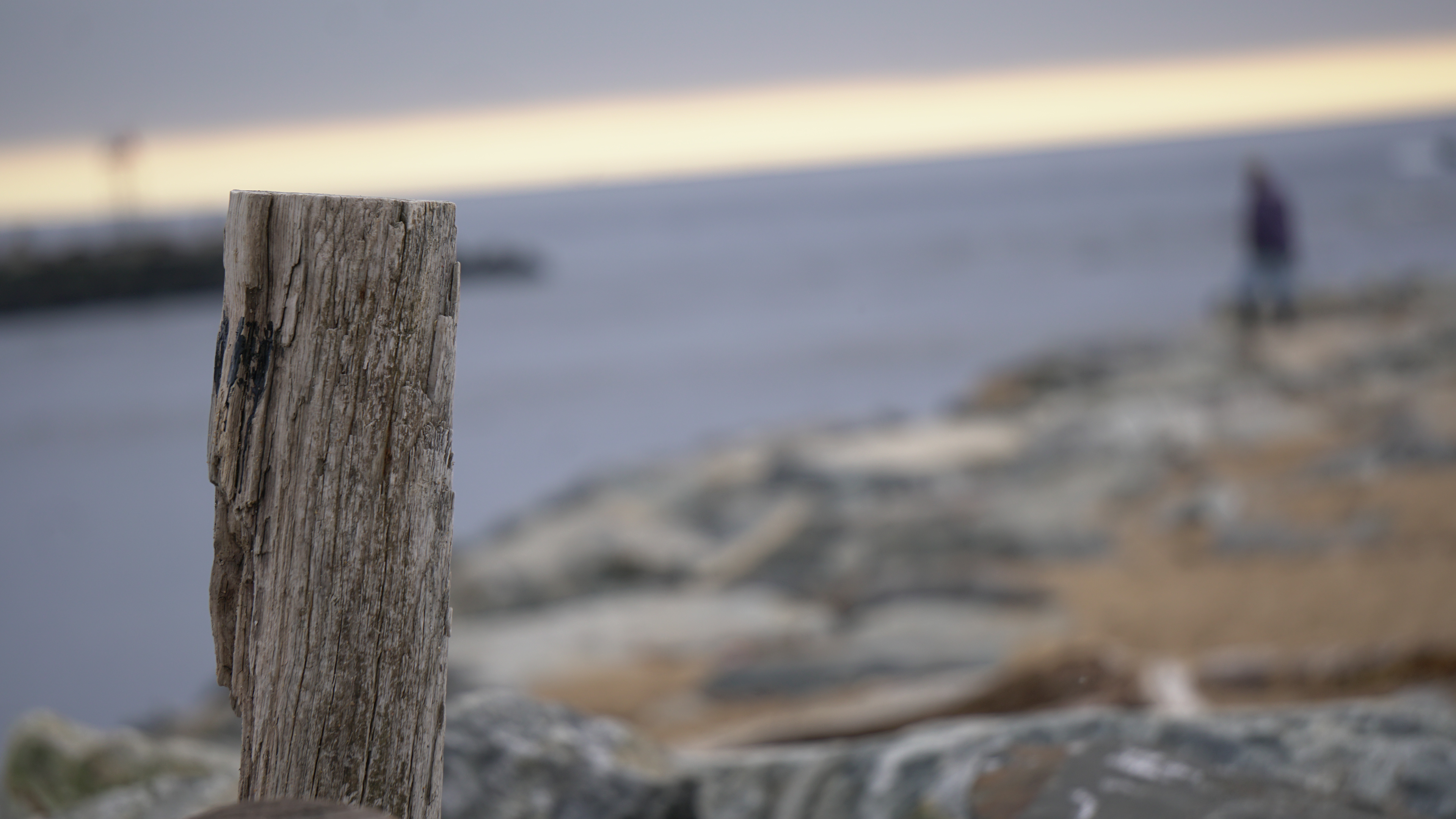
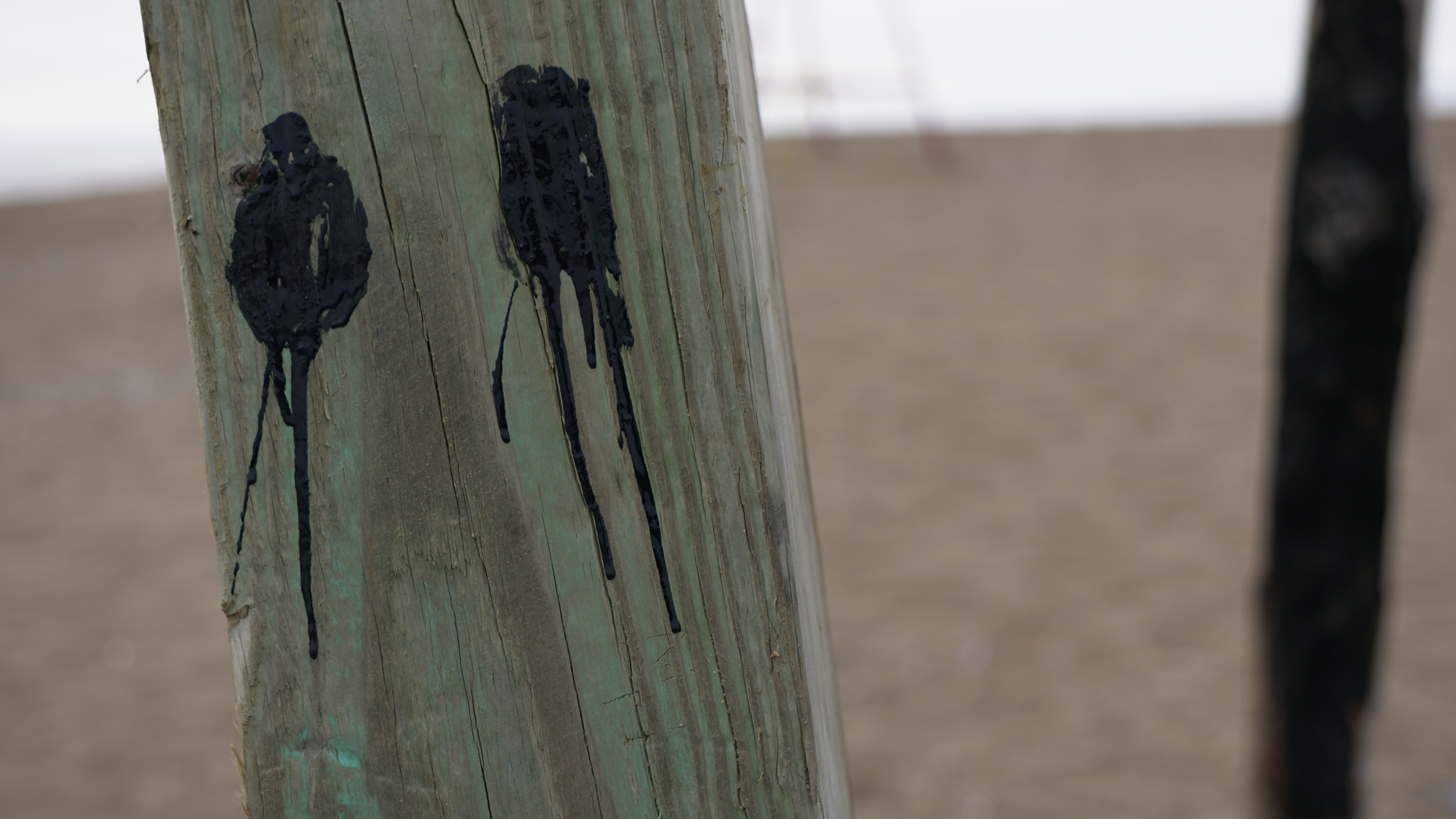
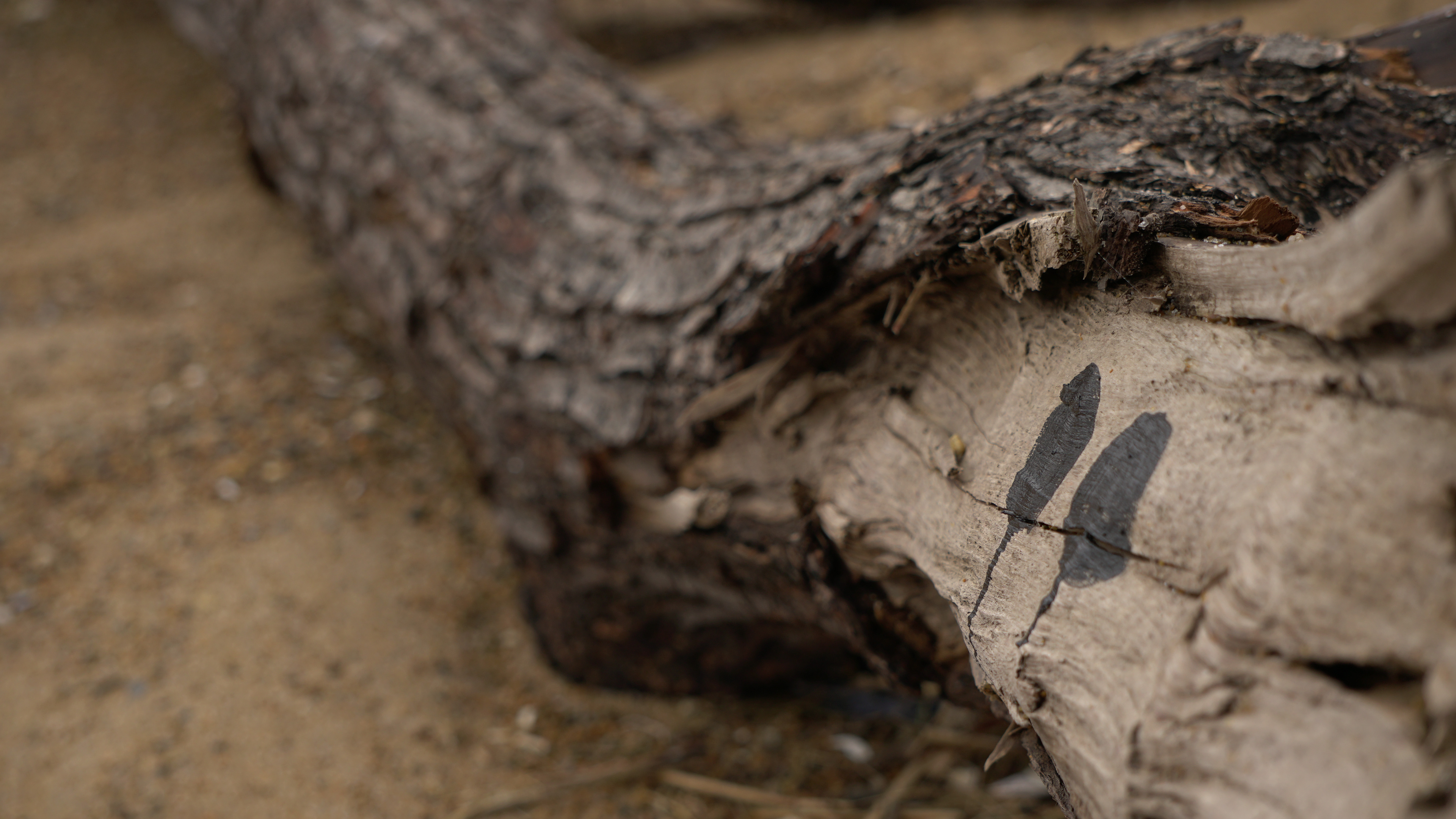
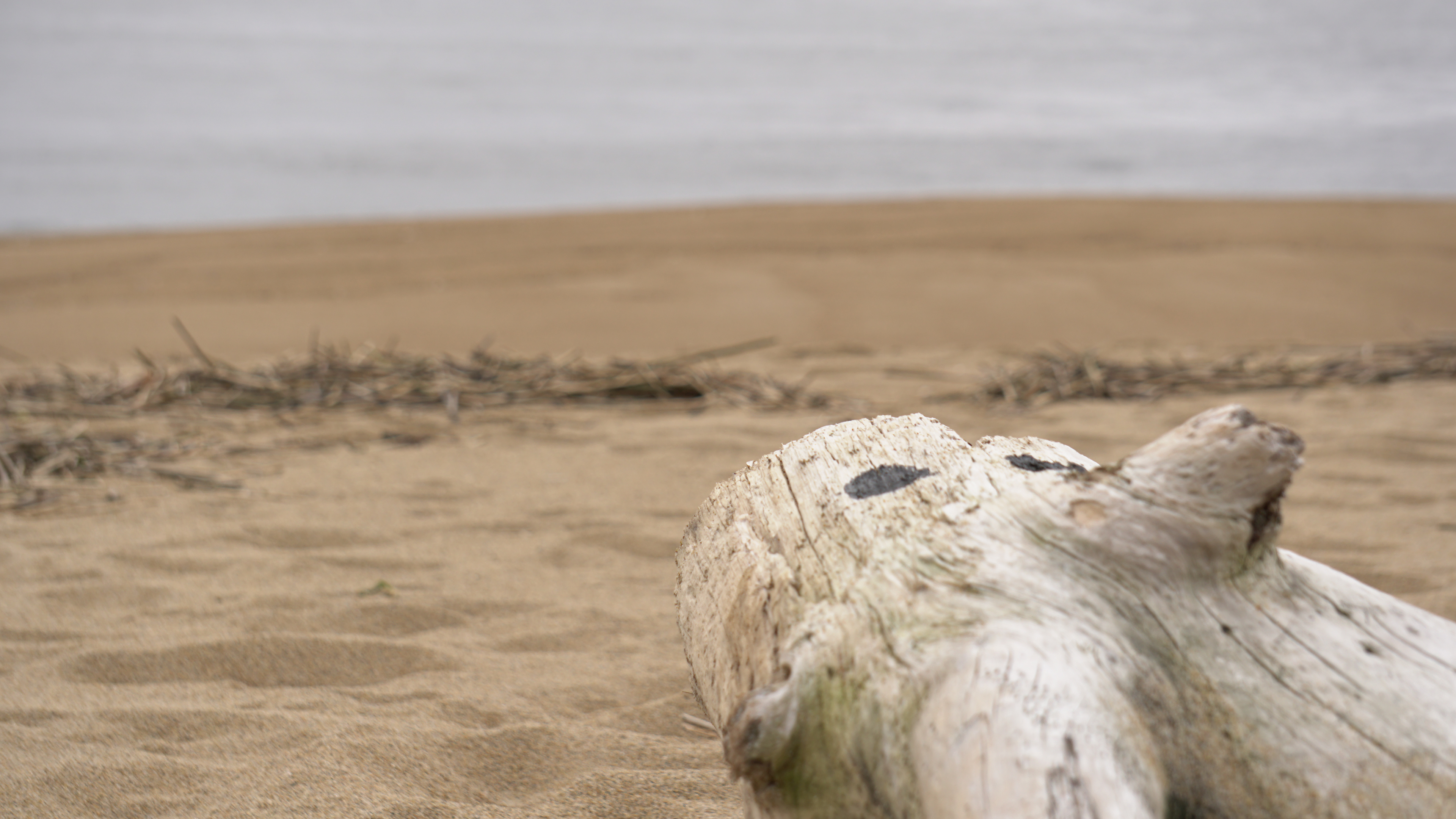
The First Watchers were stolen by the ocean from which they had risen, the waves reclaiming the discarded wood. Subsequently, throughout the northern beach of Plum Island, the watchers slowly resurfaced. Their black eyes continued their vigil, looking back at the surprised sunbathers and fishermen. In intruding on their mundane activities, the Watchers politicized the beach-goers leisure. When enjoying the gifts of nature today, you are often standing on the graves of those who have been (and continue to be) silenced. The Puritan/settler brand, the icon of Patriot New England, consciously overlooks the genocide it represents. It is an icon that excludes those conquered, ignores the destruction inflicted by the settlers’ greed.
The United States of America is built on genocide. Our normality was and is built on slavery. In many ways, the image of the American colonizer/patriot is the perfect representation of American identity. They are only missing a musket, their hands stained with blood. We cannot blame these forefathers, for, in doing so, we would also have to admit our own guilt. It isn't easy to look down and see the blood dripping from our own hands.
Currently, the world's forgotten population is being washed ashore, stolen by the tides of war, the Mediterranean, Global warming, and mass migration. They are falling victim to the border walls that partition our economy, discourse, and political actuality. In dismantling these border walls, it is necessary to recognize and listen to the voices that have been silenced, excluded. It is necessary to look between and beyond the border walls that sustains our luxury; our conception of normality. Despite the images of suffering that bombard us daily, people have forgotten how to see. Yet the people who you ignore, the drift wood of humanity’s flood, can look back.
The Watchers will migrate from Plum Island. This conclusion of “Dissecting Boston” is a call to action. The watchers will continue to multiply. I will continue building, erecting, and planting watchers across our globally divided communities. To break down border walls, it is necessary to remember those who lost their voices in our quest to speak. We are complicit in border construction. We are complicit is in forgetting. We are complicit in not listening.
It is time to be complicit in remembering (and acting).
